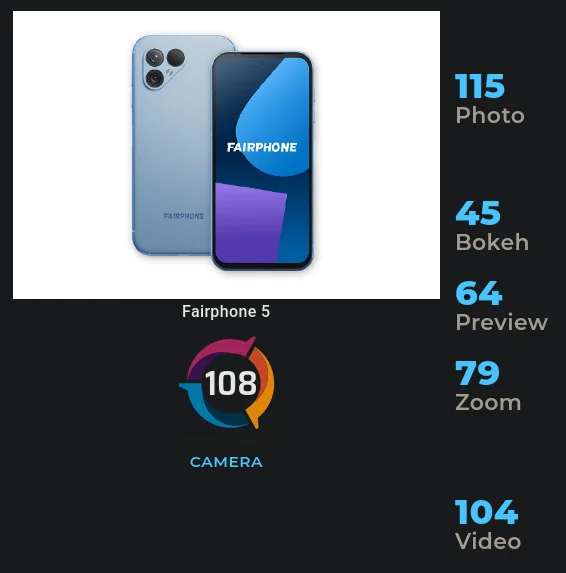Fairphone’s devices are designed with longevity, reduction of e-waste, fairer sourcing of materials and the welfare of workers in mind. The latest model Fairphone 5 5G comes with only slightly improved camera specifications but major improvements in the software department when compared to its predecessor Fairphone 4. As a result, the Fairphone 5 5G outperformed the 4 by almost 40 points in the DXOMARK Camera tests.
The improvements were most noticeable in photo and video, where the new device performed better across most test categories, including exposure, color, texture, noise, artifacts, and video stabilization. Thanks to good detail and well-controlled image noise, the camera did well in bright light conditions, making it a good option for landscape photography and similar photographic genres. In addition, photos and videos were generally exposed nicely. Colors could be slightly desaturated, however, and the video stabilization will struggle to satisfy more demanding videographers. In their tests, stabilization was often inaccurate, with residual motion and sharpness differences between frames visible in the recorded footage. Their testers also found dynamic range to be limited in some high-contrast video scenes.
The Fairphone is not a high-end phone, so no-one is expecting it to compete with other high-end phones, but for many, the camera is a very important phone component. Although the Fairphone 5 has bumped up the camera specs considerably from the v4, it is just good to know what to actually expect before buying this phone. This is why I find the DXOMARK camera tests especially interesting.
The linked article not only gives the benchmark figures, but also shows some still images and video, that can be easily compared with flagship phones.
I would really be interested to know if the Fairphone 5 would be able to accept future camera module upgrades eg. to a 100MP camera for example. That would be a real first for any smartphone!

